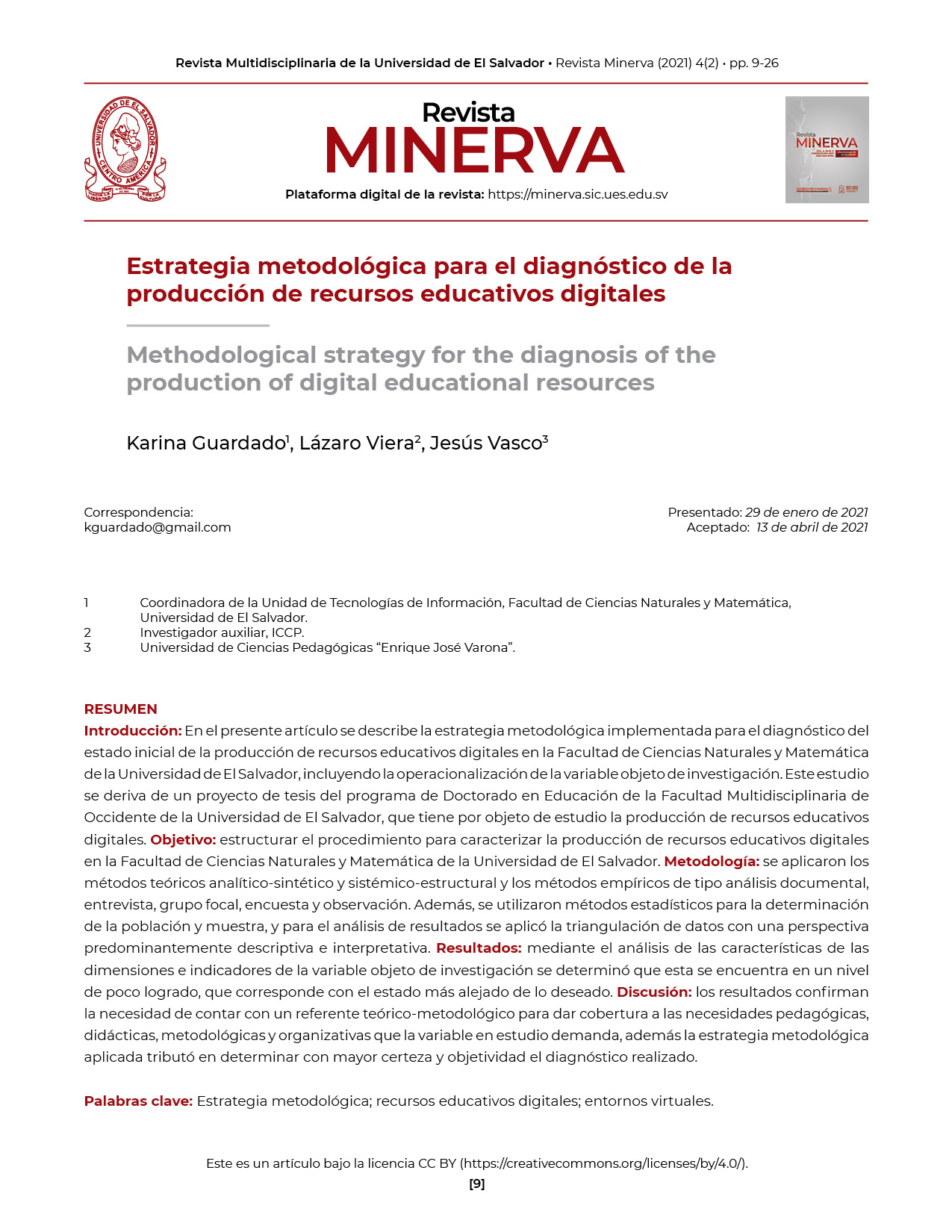Abstract
Introduction: This article describes the methodological strategy implemented for the diagnosis of the initial state of the production of digital educational resources in the Faculty of Natural Sciences and Mathematics of the University of El Salvador, including the operationalization of the variable under investigation. This study is derived from a thesis project of the Doctorate in Education program of the Multidisciplinary Faculty of the University of El Salvador, which aims to study the production of digital educational resources. Objective: To structure the procedure to characterize the production of digital educational resources in the Faculty of Natural Sciences and Mathematics of the University of El Salvador. Methodology: The analytical-synthetic and systemic-structural theoretical methods and empirical methods such as documentary analysis, interview, focus group, survey and observation were applied. In addition, statistical methods were used to determine the population and sample, and for the analysis of results, the triangulation of data was applied with a predominantly descriptive and interpretive perspective. Results: Through the analysis of the characteristics of the dimensions and indicators of the variable under study, it was determined that it is at a poorly achieved level, which corresponds to the state furthest from what is desired. Discussion: The results confirm the need to have a theoretical-methodological reference to cover the pedagogical, didactic, methodological and organizational needs that the variable under study demands, in addition the applied methodological strategy contributed to determining with greater certainty and objectivity the diagnosis made.

This work is licensed under a Creative Commons Attribution 4.0 International License.
Copyright (c) 2021 Authors who publish in Revista Minerva agree to the following terms: Authors continue as owners of their work, assigning only dissemination rights to Minerva Magazine under the standards of the Creative Commons Attribution 4.0 International License (CC BY 4.0). This license allows others to mix, adapt and build upon the work for any purpose, including commercially, and although new works must also acknowledge the initial author, they do not have to license derivative works under the same terms.





